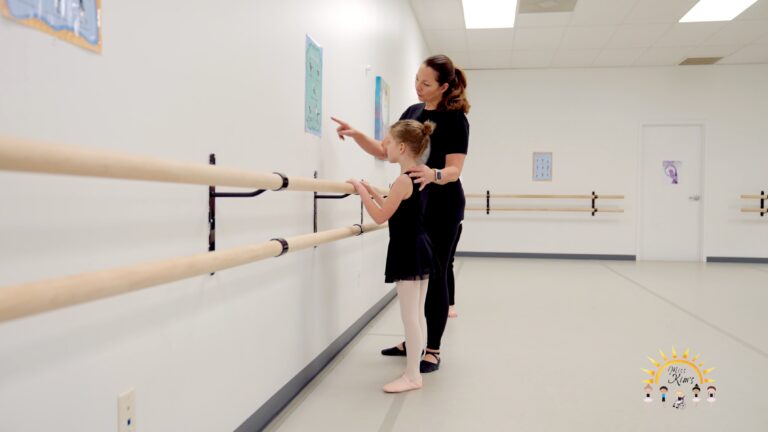
Accountant Jessica Scheitler has a helpful phrase for the clients of her Las Vegas–based tax preparation business, Financial Groove—one she thinks they’ll understand: Expense full-out. “It’s the same as when you’re at a convention, and you’re supposed to dance full-out, as big and crazy as possible,” she explains. In the world of tax preparation, it means handing over all your studio business receipts, rather than cherry-picking what seems appropriate or “right.”
There are a few other things she’d like from her clients as well—so we made a list. Use it to impress your accountant this year (and make their job a little easier).
Q: How should I organize my stuff?
“What’s going to help me is to have separate totals for each category of your deductions—like office expenses, costumes, rent, travel and meals,” says Scheitler.
Show your work. Make sure you save a record of how you added up each category’s total, she notes. If you’re ever audited, she says, you’ll need to have handy “those receipts or pieces of paper or the Excel sheet where you got the total.”
Trust the system. It’s likely that your accountant will have a worksheet for you to fill out with your totals for each deduction category. She strongly suggests transferring your information to that worksheet, rather than bringing in your own Excel document or organizational strategy.
Q: Are there any exceptions to these categories?
Meals should be separate from other totals, no matter if they’re business meals or from tour or travel. “People will put their meals in the same total as their plane ticket, when traveling, but I have to legally separate that on the return,” she says. (How come? “The government only allows us to take 50 percent of the total spent on meals,” she explains.)
It’s also important to separate automobile expenses. “People will put their gasoline expense in their travel category, and if it’s your vehicle, I have to separate that,” she says. “If you have a rental car, then I’ll put that in travel—but we’re going to take mileage.”
Q: Do I really need to save my receipts after my taxes are done?
Yes, because bank statements often don’t provide enough information about a purchase, in case of an audit. Make sure to save certain receipts, like those from:
1. Big-box stores, like Amazon or Target. “They don’t know if you bought dog food or hand weights,” says Scheitler.
2. Travel expenses, such as flight and car rental receipts. Scheitler suggests setting up a folder in your e-mail to easily save these kinds of receipts on the go. “They don’t need to be printed out,” says Scheitler. “Digital is acceptable.”
3. Meals over $75
4. Costumes. Because the IRS generally doesn’t allow clothing to be a write-off, you’ll need to prove you bought costumes. “The rule is that you shouldn’t be able to wear what you purchased on the street [in order for it to qualify as a deduction],” she says. (That means athleisure wear won’t make the grade.) In past audits, Scheitler has had to explain that tap shoes, for example, can’t be worn on the street—which is why they qualify as an acceptable costume deduction.
5. Oil changes. “If you’re claiming mileage,” she says, “your oil change receipts will include your odometer readings. In an audit, that’s the first thing they ask for.”
Q: How long should I keep my records, in case of an audit?
“Though the vast majority happen within a three-year period from the date you file your return,” Scheitler says, “there are a few audits that trickle in at the six-year mark, so we recommend you keep stuff for seven years.”
Q: How far in advance do you need all of my information?
Scheitler recommends having everything ready to go for your accountant by the first week of February.
“Extension” is not a bad word. Though Scheitler says many clients are afraid of asking for extensions on their taxes, she actually believes they are necessary at a certain point. If it’s early April and you haven’t yet seen your accountant, an extension will allow your accountant to look at your return with the fresh eyes and time it deserves.
Don’t forget Save your bank statements in digital or hard-copy form.
New for 2018 The standard deduction has been nearly doubled: It’s now $12,000 for a single person and $24,000 for a married couple. “What that means,” Scheitler explains, “is that people with W2 jobs can no longer write off business expenses—you can only write off your business expenses for 1099 work.” For studio owners, the process of writing off business deductions won’t change, for the most part, but Scheitler warns against using a personal return for write-off (as opposed to your business’ tax return).
Start scrapbooking If you are audited, you’ll need what some might consider unconventional forms of proof for what the IRS deems questionable purchases. “The type of things that mom would save for your scrapbook—that’s what we’ll need for the audit,” says Scheitler. “That playbill from The Lion King you saw to research costuming, or the flier that shows you danced in a show and it was on the middle of a barge in the Hudson River. They’re not receipts, but they’ll help you prove your case.”




